As the cause of 21,000 deaths each year in the U.S., radon gas is a carcinogen that is officially the second most common cause of lung cancer, right after cigarette smoking. When it comes to radon exposure, there are levels which are considered to be acceptable by the EPA, but no level is considered safe. We talk a lot about this topic and urge our clients to have their homes tested periodically for this colorless and odorless gas. Every country has set a level that is acceptable, but normally this has no correlation to the average indoor radon levels in the country.
According to a recent report, South Korea has been declared the country with the second highest level of radon exposure in the world. With its average annual concentration at a high of 124.9 becquerels per cubic meter or 3.4 pCi/L, the country is not far behind the Czech Republic, which measures at 140 Bq/m3 (3.8 pCi/L) of radon. However, it has been concluded that 77 primary schools in Gangwon Province have an annual average radon concentration of 156.8 Bq/m3, which exceeds the Czech Republic’s 140 Bq/m3 concentration.
After concluding that exposure to radon is actually a major health threat, the World Health Organization (WHO) has made efforts to put certain guidelines in place. As such, WHO recommends that each country takes the necessary measures to ensure that radon levels do not surpass 100 Bq/m3 (2.7 pCi/L). Lawmakers in South Korea are urging for the enforcement of strategies that will ensure that radon levels are severely controlled in areas such as educational facilities, where there are children whose bodies are vulnerable and more susceptible to health problems.
The greater your exposure to radon, the greater your risk of developing lung cancer and various other health conditions over time. Considering the fact that radon is a silent-but-deadly gas, it is important to have your home tested, instead of assuming that you are safe from its effects. Though our country has an average indoor level of 48 Bq/m3 or 1.3 pCi/L which is not be at the same level as South Korea and the Czech Republic, but that does not mean that we aren’t at risk; be proactive.
(Source: Yonhap News Agency)
(Posted by John Cheney of Pristine Inspections & Testing)
